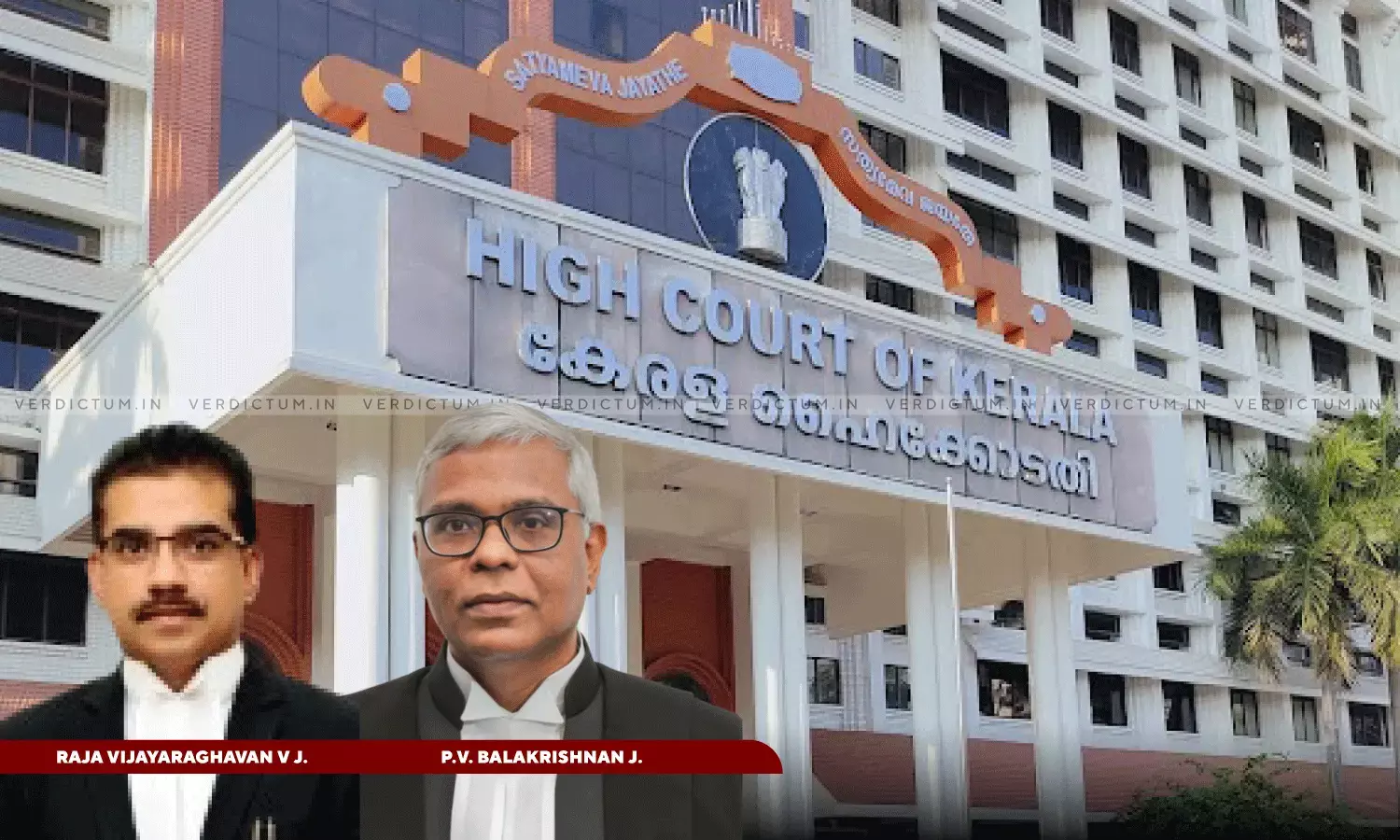Expert's Report Cannot Substitute Certificate U/S. 65B Evidence Act: Kerala High Court
The case pertained to a conviction and life sentence imposed on the appellant for offences under Sections 302 (murder), 376(A) (causing death or persistent vegetative state of a rape victim), and 201 (causing disappearance of evidence) of the IPC.

The Kerala High Court has ruled that a government expert's report under Section 293 of the CrPC cannot replace a certificate under Section 65B of the Evidence Act, which is essential for proving the admissibility of electronic evidence.
The Division Bench of Justice Raja Vijayaraghavan V and Justice P. V. Balakrishnan emphasized that an expert report merely analyzes evidence and does not automatically render an electronic record admissible.
The Court observed, “An expert's report cannot be considered as a formal substitute for Section 65B(4) certificate in the eyes of law since they serve two different purposes. A Section 65B certificate is a specific statutory requirement to make a secondary electronic record admissible as evidence, while a Section 293 CrPC report is evidentiary material in its own right, typically presenting the results of forensic analysis. The expert's statement, however authoritative, is not the same as the statutory certificate that permits the court to treat the DVD as evidence of the video's contents.”
The case pertained to a conviction and life sentence imposed on the appellant for offences under Sections 302 (murder), 376(A) (causing death or persistent vegetative state of a rape victim), and 201 (causing disappearance of evidence) of the IPC.
The prosecution alleged that the appellant had dragged a woman into a hotel, attacked her with a hoe, raped her, and then inflicted fatal injuries before damaging the CCTV camera at the scene.
During the trial, the prosecution relied on footage from a CCTV camera extracted from a Digital Video Recorder (DVR). Since the original DVR did not function, the Forensic Science Laboratory (FSL) extracted the video content and stored it on a DVD, which was presented as evidence without a Section 65B certificate. The trial court relied on this DVD to convict the appellant.
The appellant’s counsel argued that the prosecution had not proven the authenticity of the CCTV footage since only secondary evidence, the DVD was produced without the requisite certification under Section 65B of the Evidence Act. In response, the prosecution contended that a certificate was unnecessary when the original hard disk was available and that the CCTV footage clearly established the accused’s identity.
After reviewing the evidence, the High Court held that while the prosecution had proven the victim’s death was a homicide, it failed to comply with legal requirements for electronic evidence. Citing Supreme Court precedents in Anwar v. Basheer (2014) and Arjun Panditrao Khotkar v. Kailash Kushanrao Gorantyal (2020), the Court reiterated that electronic records in secondary form must be accompanied by a Section 65B certificate to be admissible.
The Court further noted, “There is no exemption granted in law to any authority, including the Forensic Science Laboratories, from complying with the requirement of certification under Section 65B while making copies from the original electronic record.”
The Court clarified that an FSL report, even if authoritative, does not replace the statutory certification necessary for an electronic record’s admissibility. It added, “For instance, if the FSL report says, ‘I retrieved video file XYZ from the DVR onto a DVD,’ the report is proof that the analyst made such retrieval. But the video recording (the DVD) still has to be independently admissible to be viewed and relied upon as evidence of the facts depicted.”
Further, the Court observed that the prosecution’s failure to produce the original DVR, despite its availability, resulted in an unfair trial, prejudicing both the victim and the accused. It held that both the trial court and the prosecution failed to meet legal standards in handling electronic evidence.
Consequently, the High Court allowed the appeal in part, setting aside the appellant’s conviction and sentence. The matter was remanded to the Trial Court for further evidence on the electronic records, ensuring compliance with legal requirements.
"The trial court shall, if required,recall any witnesses, summon any documents, take additional Section 313 statement and grant an opportunity to the accused to adduce further evidence. Thereafter, the trial court shall take a decision on the basis of the entire evidence on record and strictly in accordance with law, without in any manner being inhibited by anything stated in this judgment. Considering the fact that the accused is still undergoing incarceration, the Session Judge shall make every endeavour to dispose of the case as expeditiously as possible," the Court ordered.
Cause Title: Umer Ali v. State of Kerala [Neutral Citation No. 2025:KER:24851]
Appearance:-
Appellant: Advocates P.Mohamed Sabah, Libin Stanley, Saipooja, Sadik Ismayil, R.Gayathri
Respondent: Public Prosecutor Neema T V
Click here to read/download the Judgment

